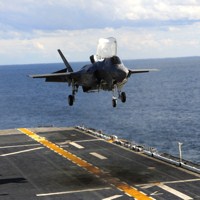
Russia’s annexation of Crimea has rekindled discussion in Sweden about raising military spending and, potentially, pushing for NATO membership. In an email interview, Jan Joel Andersson, senior research fellow and head of the North America Program at the Swedish Institute of International Affairs, explained Sweden’s defense posture and how it may change after the Ukraine crisis. WPR: What is the current size and strength of Sweden’s military, in terms of both hardware and personnel? Jan Joel Andersson: The Swedish armed forces have undergone a dramatic transformation since the end of the Cold War. Never a member of NATO, Sweden based […]


